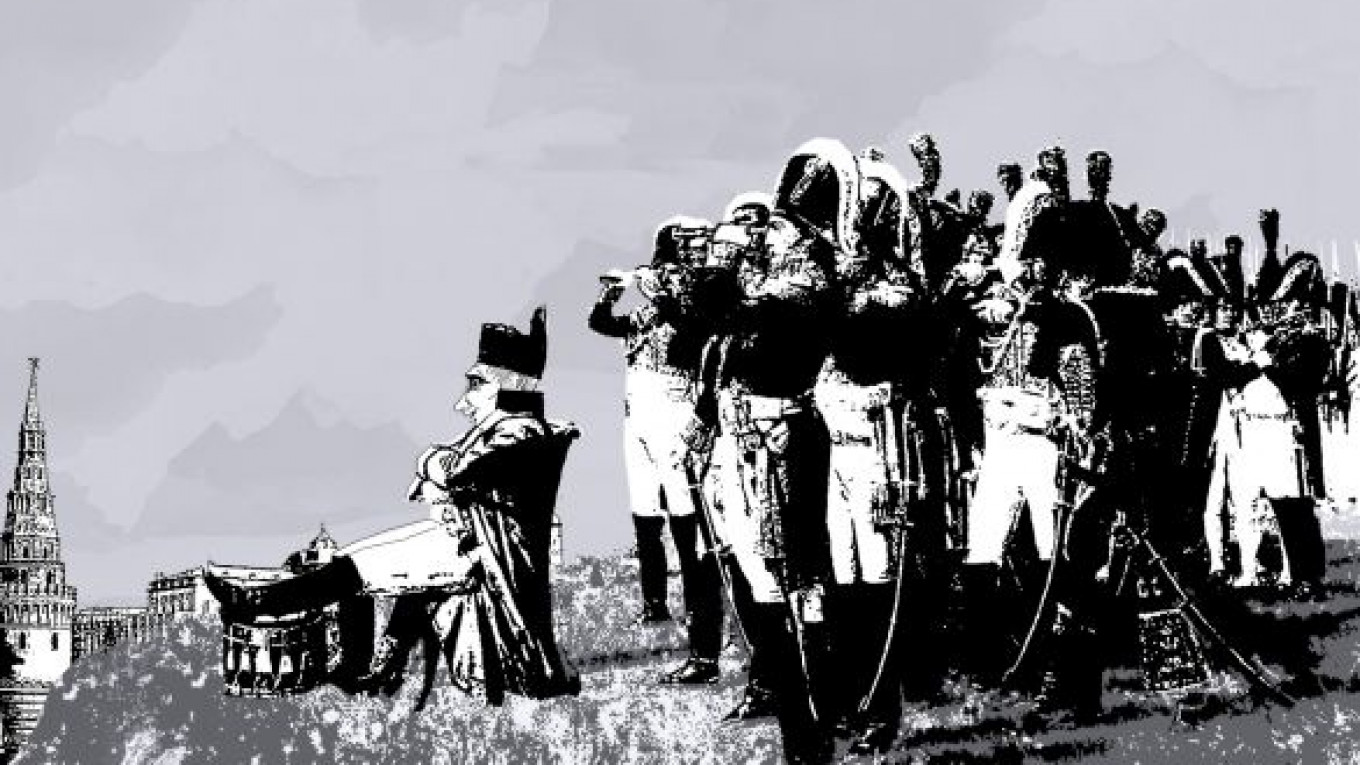The ouster of Mayor Yury Luzhkov is just the latest confirmation of the axiom about autocrats: They are driven by one main principle — to preserve and expand their grip on power.
There are many theories that analysts have batted around to explain why Luzhkov was sacked — corruption, negligence over this summer’s smog or an attempt to drive a wedge between President Dmitry Medvedev and Prime Minister Vladimir Putin. But none of these is valid. Putin and his inner circle couldn’t care less about the rampant corruption in Moscow or the toxic smog that crippled Moscow and Muscovites for weeks. What’s more, the tandem is as strong as it ever was.
The real reason Putin and his inner circle gave Luzhkov the boot was to gain full control over the country’s most important region, which had been in the hands of an obstinate, strong-willed and popular politician who was unwilling to be submissive to the Kremlin.
Putin had been planning to take over Moscow for a long time. The legal mechanism was created well in advance, when Putin abolished gubernatorial elections in 2004 and gave the president the power to fire governors whenever he experienced “a loss of confidence” in them. That purposely vague wording makes it possible to dismiss any governor for any reason at any time. For example, if Medvedev and Putin wanted, they could easily fire Tver Governor Dmitry Zelenin because of the photo Zelenin posted online of a worm he said he found in a plate of salad at a Kremlin dinner. Just like with the Luzhkov firing, the tandem could hide behind the “loss of confidence” wording without having to mention the real reason — the worm.
After the Kremlin removed the leaders of Bashkortostan, Tatarstan and Sverdlovsk, it was all but inevitable that Luzhkov would be next in line. After all, Luzhkov was a popular leader in Moscow who was also well-known on a national level. More important, he had enormous political, financial and media resources. The Moscow government has its own federal television channels, radio stations and newspapers. It also has significant influence in the courts, ministries and the State Duma, and Moscow’s current budget of 1 trillion rubles ($33.2 billion) rivals that of the federal budget.
On the surface, Luzhkov was Putin’s comrade-in-arms in the sense that they both served as United Russia’s top leaders. But because of Luzhkov’s power, popularity and stubbornness, he became a huge and sharp thorn in Putin’s side. Now Putin has found a much more loyal and obedient Moscow mayor — his trusted deputy prime minister, Sergei Sobyanin.
Equally as important is the financial aspect of the Luzhkov sacking. Moscow’s corruption will now become the Kremlin’s. Within one or two years, there will be an inevitable redistribution of Moscow property and assets. This will mean that we will see a few new millionaires in Putin’s inner circle who will take over where the wealthy top bureaucrats under Luzhkov left off.
In the end, the Kremlin is tightening its hold not only in Moscow but in the regions as well. This is happening at a time when the tandem’s popularity is falling. United Russia continues to lose ground in cities with active, educated and informed residents such as Novosibirsk, Tomsk, Angarsk in the Irkutsk region, and Dzerzhinsk in the Nizhny Novgorod region. United Russia has also seen a decline in voter support in the Chelyabinsk, Magadan and Kostroma regions. The link is direct: The less popular the regime, the more it needs to tighten its control. This is a natural law in any autocracy, whether it be China, North Korea or Russia.
As part of this process, United Russia leaders are placing lackeys in gubernatorial posts and continue to falsify election results in the few remaining direct elections left in the country. During the Oct. 10 regional elections, United Russia returned to its old tricks, strong-arming state employees and military personnel to vote for United Russia, and busloads of alcoholics and homeless people were rounded up and driven to polling stations where they submitted absentee ballots in favor of the party of power. In addition, hundreds of opposition and independent candidates were denied the right to register for the elections, Once again, federal and local election committees were inundated with complaints about election violations, and once again United Russia waxed eloquent about its tremendous victory in the elections and how the people continue to confirm through the election box the great achievements of United Russia.
Autocracies never reverse course on their own. They will never stop abusing power, increasing their wealth through corruption and suppressing human rights. Only society can put a stop to these autocratic abuses. The only question is whether it can be done peacefully.
Vladimir Ryzhkov, a State Duma deputy from 1993 to 2007, hosts a political talk show on Ekho Moskvy radio.
A Message from The Moscow Times:
Dear readers,
We are facing unprecedented challenges. Russia's Prosecutor General's Office has designated The Moscow Times as an "undesirable" organization, criminalizing our work and putting our staff at risk of prosecution. This follows our earlier unjust labeling as a "foreign agent."
These actions are direct attempts to silence independent journalism in Russia. The authorities claim our work "discredits the decisions of the Russian leadership." We see things differently: we strive to provide accurate, unbiased reporting on Russia.
We, the journalists of The Moscow Times, refuse to be silenced. But to continue our work, we need your help.
Your support, no matter how small, makes a world of difference. If you can, please support us monthly starting from just $2. It's quick to set up, and every contribution makes a significant impact.
By supporting The Moscow Times, you're defending open, independent journalism in the face of repression. Thank you for standing with us.
Remind me later.








